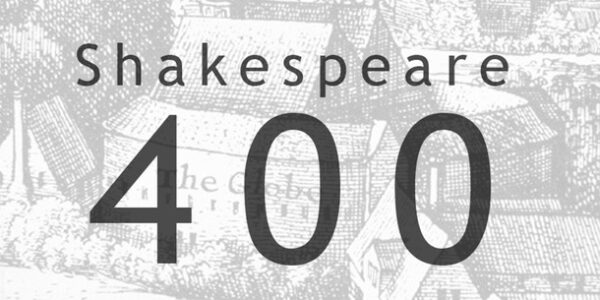Shakespeare the Wordmaker
It is a remarkable fact that the works of William Shakespeare include more 2000 words that are not recorded in any earlier author. It is likely that some of these words were not actually invented by Shakespeare, but had been used earlier in spoken language or by authors whose works do not survive. Nevertheless, Shakespeare appears to have either coined or popularized many words that are still in everyday use some 400 years after his death. These words rarely came out of thin air, but were rather the products of playing with existing English words or adapting words from Latin and Greek. Here are just a few examples:
tranquil
As is the case with many words that are first recorded in Shakespeare, this is an English version of a Latin word. The Latin adjective tranquillus, meaning ‘calm’ or ‘serene’, was pressed into service when Othello is tortured with jealousy and says, ‘Farewell the tranquil mind!’ Shakespeare is also responsible for first use of ‘tranquillity’, in Henry IV, part 1.
addiction
This word comes from the Latin addictus, meaning ‘dedicated’ or ‘given over to’. When, in Henry V, the Archbishop of Canterbury says of the king’s misspent youth that ‘his addiction was to courses vain’, he means that Henry dedicated himself to idle pleasure, but there is no suggestion that this behaviour was anything other than voluntary. The idea of addiction involving some kind of compulsion or psychological dependency only developed much later.
mimic
The word goes back to the Ancient Greek mimos, meaning a non-speaking performer in a drama. This word came into English as ‘mima’ or ‘mime’, but Shakespeare appears to have added a new ending when he writes in A Midsummer Night’s Dream ‘and forth my mimic comes’. Since Shakespeare’s time, ‘mimic’ has come to be used of any person who imitates – not just an actor – and it is now often used as a verb as well.
gloomy
The word ‘gloom’ was originally a verb meaning ‘to look sullen’, and comes from the Norwegian dialect word glome, meaning ‘to look at in a suspicious manner’. By Shakespeare’s time, ‘gloom’ had developed into a noun, meaning ‘darkness’, but Shakespeare is the first recorded person to use the adjective ‘gloomy’. It occurs three times in his works, such as when he writes of ‘the ruthless, vast and gloomy woods’ in Titus Andronicus.



